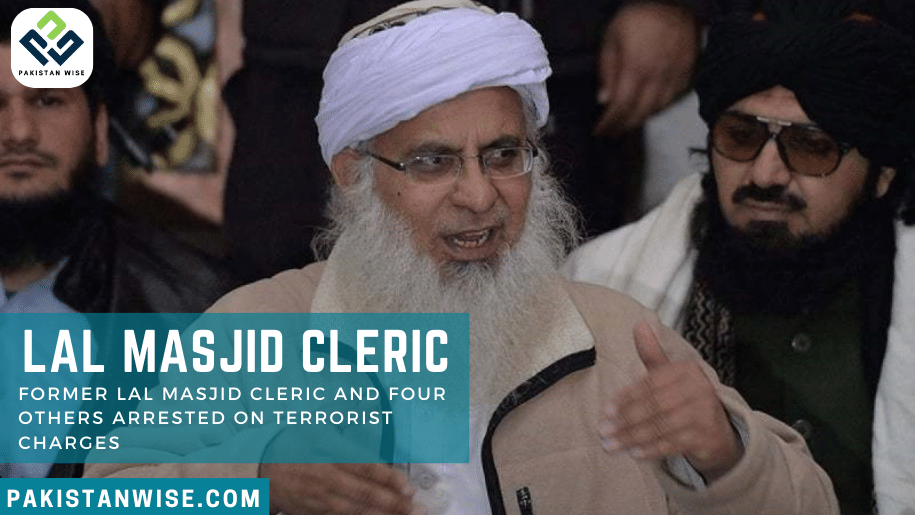In a significant development, Maulana Abdul Aziz, a former cleric of the renowned Lal Masjid, along with four other individuals, was apprehended this week on charges related to terrorism. The arrest came after an alarming incident where gunfire was exchanged between the suspects and police officers in the heart of the capital city. Adding to the gravity of the situation, Maulana Aziz’s wife, Umme Hassan, also faces charges for making threats against the police. The Counter-Terrorism Department (CTD) and the Kohsar police station have filed cases against the accused.
The authorities wasted no time in invoking stringent legal measures against the suspects. Sections 324 (attempt to commit murder), 7 (penalty for acts of terrorism), and 11E (measures against a proscribed organization) of the Pakistan Penal Code, in addition to the Anti-Terrorism Act (ATA), have been applied to address the severity of the offenses committed.
According to the First Information Report (FIR), Maulana Abdul Aziz and his associates caused widespread disruption by barricading Jinnah Avenue and Fazl-e-Haq Road for over six hours. As a result, businesses were forced to shut down, inconveniencing the general public.
The situation escalated further when the police encountered a suspicious vehicle in the Melody neighborhood. Shockingly, three armed individuals inside the truck opened fire on the officers. The FIR reveals that Maulana Aziz was among those present in the vehicle and actively participated in firing at the law enforcement personnel, further aggravating the seriousness of the incident.
The police, responding swiftly to the attack, managed to apprehend three suspects: Murad Khan, Abrar Ahmad, and Sarfaraz Hussain. They successfully seized two machine guns from the assailants. However, Maulana Aziz and the driver, Manzoor, managed to escape the scene, raising concerns about their potential involvement in future criminal activities.
It is important to note that Maulana Abdul Aziz has a history of legal troubles, having faced multiple cases previously. Furthermore, he has been included in the Fourth Schedule of the ATA, a list that designates individuals suspected of engaging in terrorism-related activities, subjecting them to enhanced surveillance and restrictions.
The arrest of Maulana Aziz and his associates serves as a testament to the government’s unwavering commitment to preserving law and order while combating terrorism. It sends a resolute message that individuals who partake in violent acts and pose a threat to public safety will be held accountable for their actions.
The commendable efforts of the Counter-Terrorism Department and the police, resulting in the swift arrest of the suspects, deserve recognition. Their dedication and bravery in apprehending those responsible for the attack on law enforcement officers exemplify their commitment to establishing a safe and secure environment for the capital city’s residents.
This incident also underscores the necessity of sustained vigilance and proactive measures to identify and preempt potential threats. It serves as a reminder that extremism and terrorism persist as formidable challenges, requiring ongoing collaboration between law enforcement agencies and the public at large.
In combating these challenges, the focus should extend beyond apprehending individuals involved in criminal activities and delve into addressing the underlying causes of extremism. By fostering education, tolerance, and inclusivity, society can strive to create an environment where radical ideologies find no fertile ground.
In conclusion, the arrest of former Lal Masjid cleric Maulana Abdul Aziz and four other individuals on terrorism charges sends a powerful message that acts of violence and threats to public safety will not be tolerated. The prompt actions taken by the authorities, including the filing of appropriate cases and the invocation of relevant legal sections, signify their dedication to upholding justice and maintaining peace in the capital city. It is imperative for the government, law enforcement agencies, and society as a whole to continue their relentless efforts in combating extremism and terrorism, ensuring the safety and well-being of all citizens.

